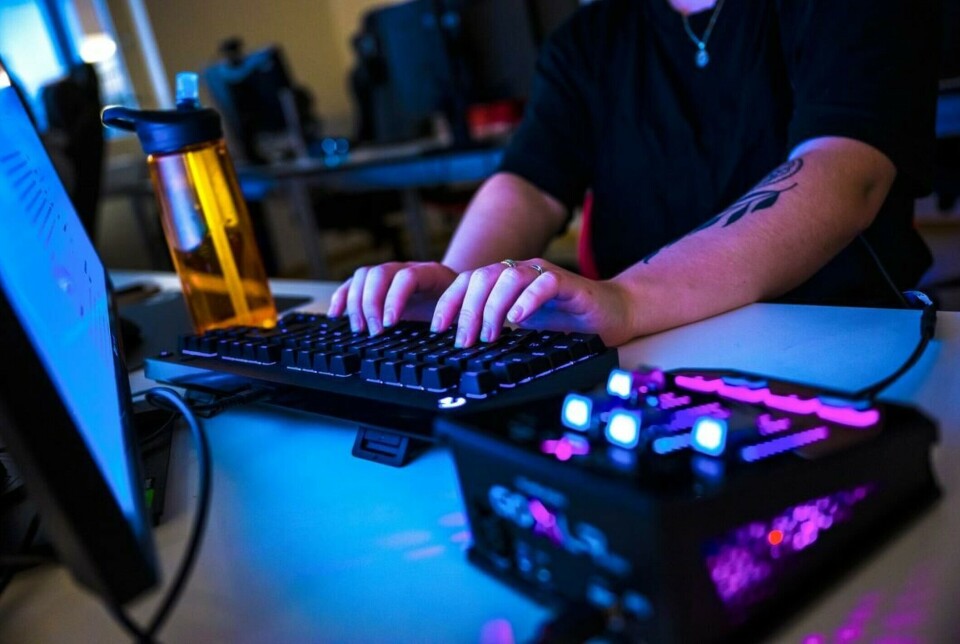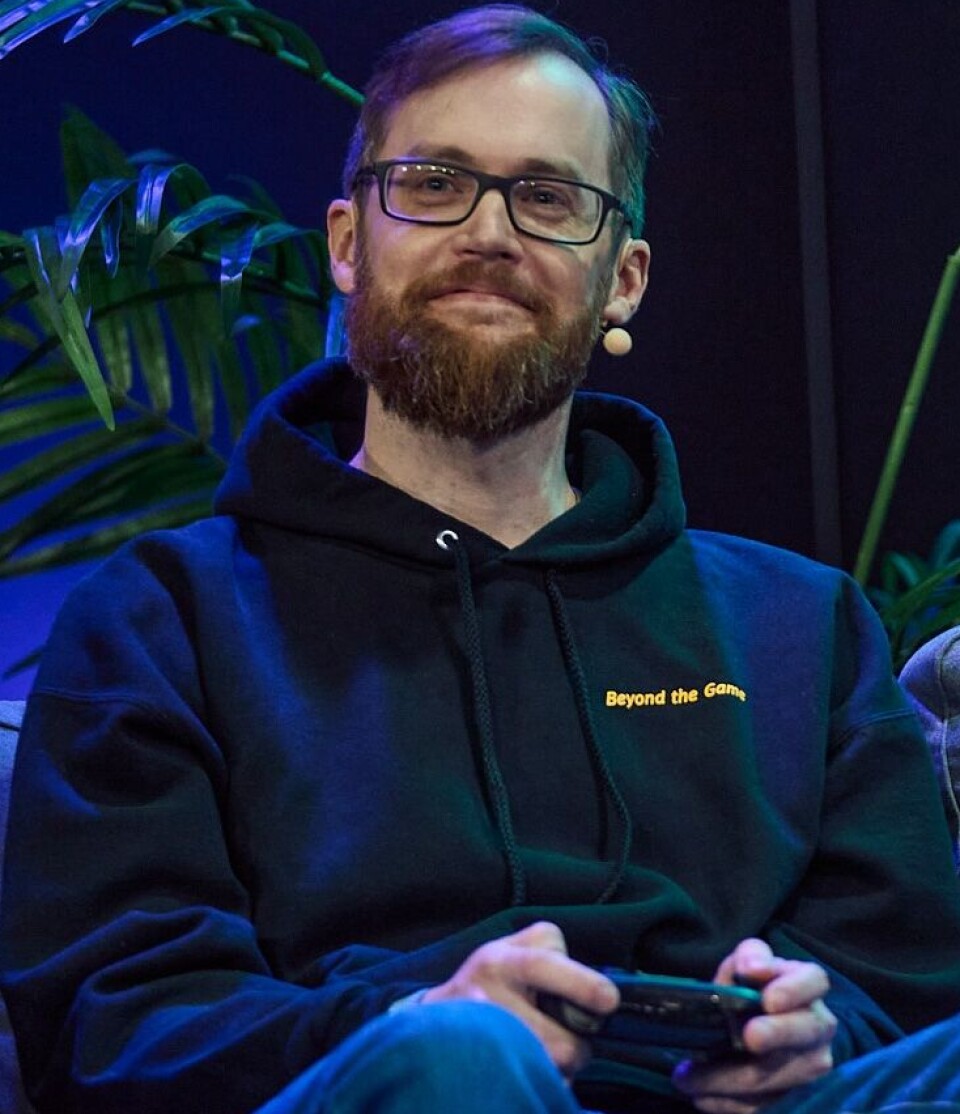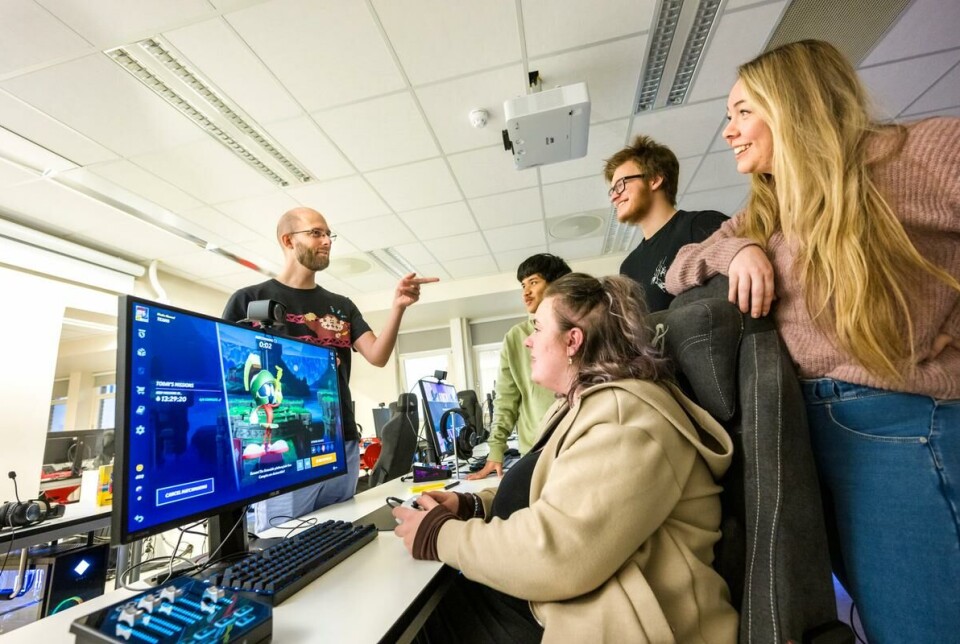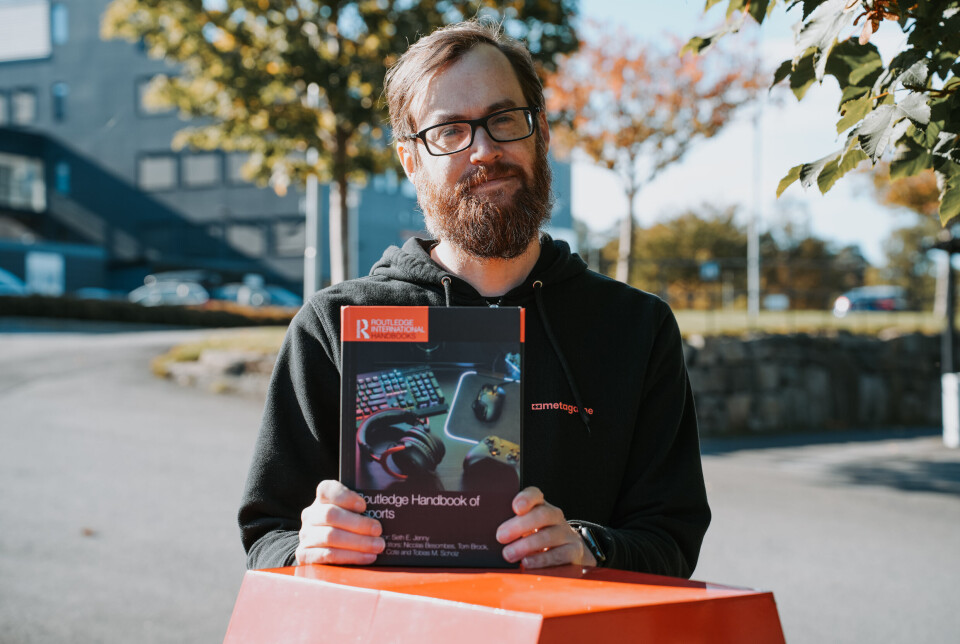THIS CONTENT IS BROUGHT TO YOU BY THE University of Agder - read more

What's the deal with esports?
How can the skills learned in esports be applied to other areas? We asked esports researcher Tobias Michael Scholz.
Have you heard of Faker? How about Counter-Strike or League of Legends – do those sound familiar?
If you answered no, you should keep reading. If yes, you might still learn a thing or two.
First things first: Faker is the nickname of a 34-year-old esports player from South Korea. He recently won the world championship in the video game League of Legends - once again.
He also plays Counter-Strike. He is world-famous and, to many, synonymous with South Korea.
“You have Korean pop, known as K-pop, and then you have Faker. He is the Michael Jordan of esports,” says Tobias Michael Scholz.
He is an esports researcher and associate professor at the University of Agder.

Scholz is the co-author of a new handbook on esports. The book is the first in the world to offer an overview of everything related to esports: research in the field, the industry surrounding the sport, different types of players, players' health and lifestyle, tips and advice for parents, and more.
“Esports is one of the world's fastest-growing sectors in sports and entertainment. In a short time, it has evolved into a professional industry,” says Scholz.
Organised competition
Many have tried to define and describe esports. A Google search will yield many different definitions.
The term emerged in the late 1990s, replacing terms such as competitive gaming, LAN, and video game tournaments.
Scholz and his co-authors define esports as an organised and regulated competition between players using video games.
Regular gaming is more informal. There, you can also play against the computer, rather than real people.
“You can draw different lines here. But even at an amateur level, the sport is characterised by a certain professionalism and level of skill. Players often need to have achieved certain results and rankings to participate in a competition,” explains Scholz.
Many communities and varying degrees of control
That esports is much more than gaming is also evident from the game's development in recent years.
Players earn money through prizes, sponsorships, and contracts. This has grown significantly in recent years.
World-famous Faker has a large support team around him: coaches, health advisers, sponsors, and managers.
Esports, however, differs from traditional sports in several ways. For one, the game publisher has full legal control over their game, even though the players to a large extent help define it.
And with so many different games, play styles, and communities that emerge around them, it is difficult to establish a single industry standard.

“In football, it's a big leap to go from amateur to professional level. In esports, there was a recent example of a team of five friends from Turkey who kept playing and winning – eventually reaching an international final in the game Valorant, without any contract or sponsor,” says Scholz.
Esports is also more international than national. Berlin, for example, has become an ‘esports hub’ for many professional players, teams, and tournaments.
No couch potatoes
As esports has grown and evolved, the diverse skills of its athletes have gained recognition.
Mental endurance is highlighted as crucial. In games like League of Legends, matches can last up to 40 minutes with constant high intensity. This requires a high level of concentration.
Other essential skills include teamwork, strategy, good eye-hand coordination, and fine motor skills.
“It's easy to assume that a typical esports player is just a gamer who sits alone in a dark room, without friends, and ignores reality. There's still stigma and stereotypical attitudes,” says Scholz.
He has researched what characterises different esports environments and the distinct qualities of esports players.

Together with his colleague Rune Andersen at the University of Agder, he has also investigated how the skills acquired in esports can be transferred to other fields in today's digital world.
“If you have little work experience but a lot of gaming experience, it can be invaluable. We leverage this, for example, in a collaborative project with the employment and inclusion company Varodd and other businesses and industries, which helps young unemployed people enter the workforce,” explains Scholz.
Analytical thinking, problem solving – and fresh air
More and more parts of the workforce, both nationally and internationally, are seeing the potential in utilising the skills developed through esports.
Several universities worldwide now offer their own study programmes in esports. However, in the bachelor's programme in academic esports at the University of Agder, gaming is not the only focus in the curriculum.
“We don't teach them to become part of the esports industry. We teach them skills through esports that can then be applied in a digital work environment,” explains Scholz, who teaches in the programme himself.
In addition to subjects like programming and marketing, they have courses in physical activity and psychology. These areas have received increased attention in the esports industry in recent years.
“Good health, sleep, and physical activity - healthy gaming habits also improve performance. The same goes for a workplace where we are increasingly digital all day. The brain needs breaks to perform better,” says Scholz.
Lessons from Ibelin
In the esports handbook, there is a dedicated chapter offering tips for parents and others close to esports players.
It emphasises understanding, participating, and observing children and young people – rather than adopting a negative attitude.
“There are still many misunderstandings around screen use, addiction, and violent games. Yes, it can go too far and be addictive. But parents need to realise that if their child plays esports, it can also be a positive thing. If we prevent them, we stop them from acquiring knowledge and skills they will need in a digitalised world,” believes Scholz.
Scholz himself has been active in the European World of Warcraft community. So was Mats ‘Ibelin’ Steen. He suffered from Duchenne but was an avid gamer until he died in 2014.
The documentary The Remarkable life of Ibelin has touched audiences worldwide after its recent release on Netflix.
It was only after Steen passed away that his parents discovered all the friends he had in the gaming community.
“The most important lesson from the Ibelin film is openness. And that esports can actually be one of the most inclusive sports available,” says Scholz.
References:
Andersen et al. 'Level Up: Unleashing the Potential of Esports for Transferable Skill Development in the Digital Working World', ICERI2023 Proceedings, pp. 1403-1412, 2023. DOI: 10.21125/iceri.2023.0455 (Abstract)
Jenny et al. 'Routledge Handbook of Esports', Routledge, 2024. ISBN: 9781032531502 (Summary)
———
Read the Norwegian version of this article on forskning.no

This content is paid for and presented by the University of Agder
This content is created by the University of Agder's communication staff, who use this platform to communicate science and share results from research with the public. The University of Agder is one of more than 80 owners of ScienceNorway.no. Read more here.
More content from the University of Agder:
-
Fear being rejected: Half pay for gender-affirming surgery themselves
-
Study: "Young people take Paracetamol and Ibuprofen for anxiety, depression, and physical pain"
-
Research paved the way for better maths courses for multicultural student teachers
-
The law protects the students. What about the teachers?
-
This researcher has helped more economics students pass their maths exams
-
There are many cases of fathers and sons both reaching elite level in football. Why is that?




































